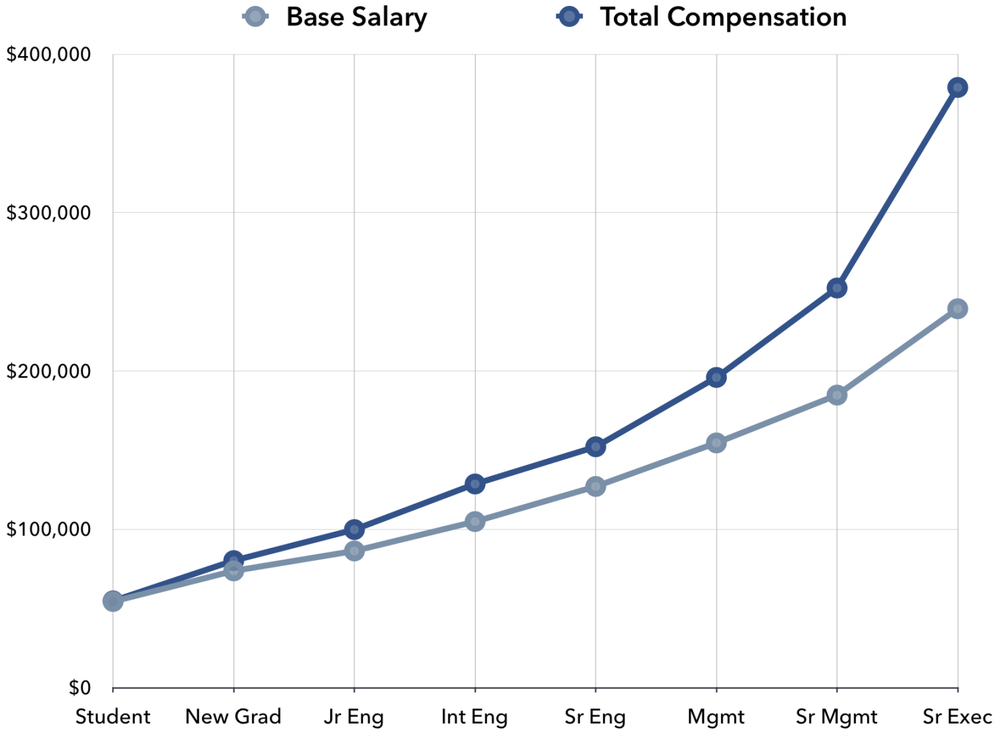
Industrial engineers are responsible to optimize production processes and improve product quality by coordinating people, data, and machines. Their work includes analyzing engineering specifications, production schedules and process flows to identify the most efficient methods of production. In addition to analyzing engineering specifications, production schedules and process flows, they also collaborate with customers to create project planning. An industrial engineer's typical day would consist of a range of tasks that include analysis and production scheduling development.
Industrial engineering careers
A master's degree or doctoral degree is required if you want to pursue a career as an industrial engineer. For more information about the field, you can take free online courses. Courses on edX. Coursera. FutureLearn offer college credit and are open to students of all levels. For industrial engineers, there are fellowships. Most universities maintain graduate student fellowship programs, and you can also find fellowships through the American Society for Engineering Education (ASEE).

A four-year degree is the norm for industrial engineers, though some programs can be completed by high school students. The degree can open up many opportunities within virtually any industry. Some industrial engineers spend their time in an office environment while others work in a manufacturing plant.
Job duties of an industrial engineer
Industrial engineers have many responsibilities. They can help companies realize their objectives by designing efficient manufacturing processes. Aside from designing new machines or systems, an industrial engineer also analyzes and plans for improvements to existing manufacturing processes. For the development and implementation of new processes, an industrial engineer uses advanced research and analytical skills. Manufacturing engineers must also be meticulous and have excellent leadership skills. The ability to analyse manufacturing processes, set quality standards and manage production schedules is essential.
Job duties of an industrial engineer include assessing the tasks and equipment used by employees, designing new processes, and developing processes to reduce costs and improve productivity. An Industrial Engineer can also help establish work measurement systems or labor utilization guidelines. In addition, an Industrial Engineer might be involved in the creation of budgets or tracking metrics. Those who choose to work in this field should be physically fit, as they will likely have to stand for extended periods of time.
For an industrial engineer, you need to have the right education
Whether you're interested in improving the way businesses run or designing processes to make things more efficient, an industrial engineer's education is key. To excel in their field, industrial engineers should have solid communication skills and a strong mathematical background. They must be able analyze problems and come up with logical solutions. They must also be able to solve problems because they are often faced with multiple issues simultaneously.

Industrial engineers can get a bachelor's degree but employers may prefer to hire people with an advanced degree. Graduate degrees are available in industrial engineering, which can help improve one's earning potential. Students can earn an MS in industrial engineering online from Arizona State University, where they'll learn about the complex workings of large organizations. The university's faculty members are highly qualified professionals with many years experience. It has an excellent reputation for teaching.
FAQ
Which engineering discipline is best for girls
Girls are always looking for an environment that will teach them how to create a better world for themselves. Engineers are not only for men, it is also open to women. Engineering can help them be successful women who give back to society and their families.
Engineering is a great career choice for young women because it allows you to learn new skills and develop knowledge that could lead to a rewarding job. It can also help her build confidence and independence.
It allows her to make an impact on the lives of others and the environment.
This website is designed to encourage girls to pursue engineering as a career. We want them to see the beauty of engineering.
We hope you enjoy our site and find it useful. We are here to help you if there are any questions.
Elon Musk: What kind of engineer would you be?
He is an inventor who likes to think outside the box.
He is also a risk taker.
He's not afraid to experiment with new ideas and is open to taking risks.
Elon Musk represents a great example for someone who thinks differently. He doesn’t believe what everyone else is saying. Instead, he tries out his own ideas and then decides whether they worked or not. He changes his ideas if they don’t work and then he tries again until he has something that works. He is able to develop new ideas and solve problems.
What is an Aerospace Engineer?
Aerospace engineer uses their knowledge of aeronautics, propulsion, robotics, and flight dynamics to design aircraft, spacecraft, satellites, rockets, and missiles.
A space engineer could be involved in the design of new aircraft types, fuel sources, improving existing engines or creating space suits.
Is engineering hard to study?
It depends on the meaning of 'hard'. If you mean tough, then yes. If you mean boring, then no. Engineering is not difficult, but it does require a lot maths and physics.
You can learn to do something if you really want it. To become an engineer, you don't necessarily have to be an engineer.
Engineering is fun if you're doing something you love.
It could be said that engineering is simple if you know all the details. However, it isn't true.
The reason why people think engineers are boring is that they haven't tried anything else yet.
They've just stuck to the same old thing day after day.
There are many methods to solve problems. Each way has its strengths and weaknesses. They all have their advantages and disadvantages, so try them all and decide which one you like best.
What do civil engineers do?
Civil engineering involves the design and construction large-scale structures like roads, bridges and buildings. It includes all aspects of structural engineering including foundations, geotechnics and hydraulics as well as soils, safety analysis, traffic management, environmental impact assessment, and safety analysis. Civil engineers ensure that your project is both cost-effective, and environmentally responsible. They must ensure that the structure is safe and durable.
They can also plan and execute public works programs. For example, they may be responsible for the construction or design of a bridge, road, or tunnel.
Do I need special qualifications to study engineering?
No. You only need to get good grades in your GCSEs. However, some universities do require applicants to achieve certain levels of academic achievement before they can enroll. Cambridge University, in particular, requires applicants attain A* to C grades in Maths and English Language.
If you do not meet these requirements, you'll need to take additional courses in order to be prepared for university entrance tests.
You might also need to take additional maths/science subjects and a language course. You can learn more about these options by contacting your school guidance counselors.
Engineering: What does it mean?
Engineering, in short, is the application scientific principles to make useful things. Engineers apply their scientific and mathematical knowledge to create machines, vehicles, buildings and bridges, as well as aircraft, spacecraft and robots.
Engineers may be involved in research and development, production, maintenance, testing, quality control, sales, marketing, management, teaching, consulting, law, politics, finance, human resources, administration, and many other areas.
An engineer can have many responsibilities. These include designing, building products, services, and processes.
Engineers can be specialists in many areas such as mechanical, chemical, electrical, civil, computer, biomedical and manufacturing.
Engineers may choose to concentrate on specific areas of engineering such as aeronautics or biotechnology.
Statistics
- 8% Civil engineers solve infrastructure problems. (snhu.edu)
- Job growth outlook through 2030: 9% (snhu.edu)
External Links
How To
How to Use an Engineering Ruler
Engineers use an engineering ruler for measuring distances. Since ancient times, engineers measure distances. Around 3000 BC, the first measurement device was invented.
We still use rulers in the modern age, but their usage has changed. The most common type of ruler today is called a metric ruler. These rulers are marked in millimeters (1mm 0.039 inches). Metric rulers can be rectangular or oval in shape. There are also millimeters and centimeters on some rulers. For example, 1 cm equals 2.54 mm.
Engineers are unlikely to use a traditional mechanical ruler today. They would use a digital version, which measures in millimeters. It functions much the same as a regular digital gauge, but it has markings to correspond with different length units. Learn more about them here.